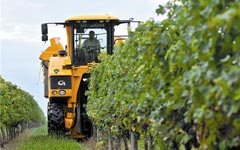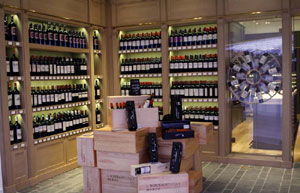|
 |
|
 |
"Most of the businesses that focused on the government and corporate channels have gone bankrupt or are saddled with excess inventories."
She says as a result, many producers have had to promote sales of entry-level, lower-price wines.
"To stay afloat in the wine industry in China, you have to target those people who are using their own money to buy wine. As a result the prices have dropped."
China's wine drinkers have traditionally stuck to domestic brands. More than 80 percent of the wines drunk in China are domestically produced, with imports hovering between 15 and 20 percent in the past five years.
The biggest advantage Chinese vineyards have is in understanding how to effectively establish operations and market to Chinese clients, says Judy Leissner, owner of Grace Vineyard, the only family-owned boutique winery in China.
"An obvious advantage that a domestic producer has is the understanding of the local market. This is something that foreign producers can expect to gain only over years," she says.
"Domestic producers also understand better how to operate in China, for example how to set up a winery, which department to deal with, how to deal with the growers and government, and what incentives are available."
Set up in 1997, Grace Vineyard has won several international awards and is one of a handful of Chinese vineyards pushing the envelope to get Chinese wineries global recognition.
Leissner says the relatively low number of Chinese wine producers catering to high domestic demand has given Chinese producers an edge when marketing made-in-China wines.
"It's easier to market a made-in-China wine because there is still far less competition. Bordeaux itself has more than 10,000 wineries. China as a whole has fewer than 1,000. It's easier to stand out as a Chinese winery in China," she says.
Despite ample success in the past five years, she says Chinese wineries have also felt the pressure from government austerity measures. Last year marked the first time since 2003 operations did not turn over double-digit growth, Leissner says.
|
 |
 |
